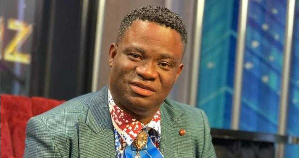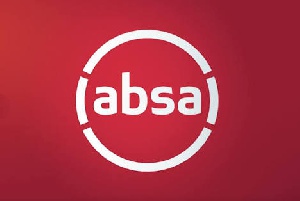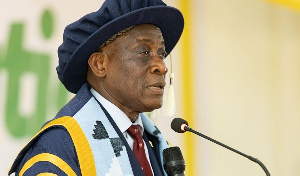The new CEO of South Africa’s Absa, Daniel Mminele, said on Wednesday he had a mandate to review strategy and make changes if needed, as the lender reported a 3% rise in full-year profit and pushed back the timeline for meeting a key target.
Mminele took over the bank, which has been trying to improve performance since splitting from parent Britain’s Barclays in 2017, in January, and a lingering question has been whether he would continue with the strategy set by long-time Absa boss Maria Ramos before her departure last year.
But in his first results presentation to analysts since taking over, Mminele said: “It has been almost two years since we began implementing this strategy and we are now in a position to evaluate whether we are seeing the desired outcomes.”
“In this regard, I have a full mandate to review our strategy and its execution and to make changes where necessary.”
Absa’s strategy encompassed a drive to win back market share lost while majority owned by Barclays and to grow its business across Africa. It set itself a series of ambitious targets in order to achieve this.
But like its peers, at home Absa faces an economy characterised by stagnant growth, high unemployment and rising living costs, and which tipped into recession in the final quarter of last year.
It warned on Wednesday it would take longer to achieve its 18% to 20% return on equity target by 2021 as planned as a result, with this instead anticipated in 2022 at the earliest. Rival Nedbank also had to push back the date it expected to achieve this key profitability metric.
The bank’s headline earnings per share (HEPS) - the main profit measure in South Africa - stood at 1,750.1 cents ($1.10) in the year to Dec. 31, compared with 1,703.7 cents a year earlier.
However, on a normalised basis, which accounts for the impact of its split from former parent Britain’s Barclays in 2017, HEPS rose by just 1%.
Absa’s South African retail bank - the engine of its operation - saw a 2% decline in earnings, hurt by rising bad debts.
The group’s credit impairment charge increased by 24%, mirroring a similar spike across peers.
The bank’s shares rose 2.5% at the market open.
Africa Business News of Wednesday, 11 March 2020
Source: www.ghanaweb.com
New CEO of Absa to review strategy as South Africa's economy hurts lenders
Entertainment












